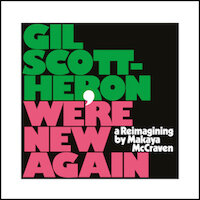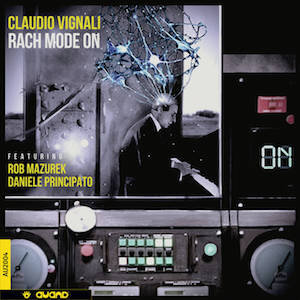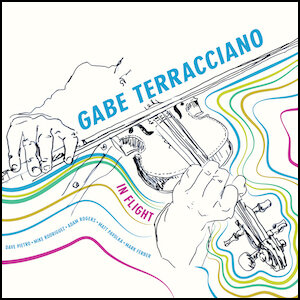Label: Whirlwind Recordings, 2020
Personnel - Jure Pukl: tenor and soprano saxophones; Charles Altura: guitar; Joel Ross: vibraphone; Matt Brewer: bass; Kweku Sumbry: drums.
With Broken Circles, Slevenian-born, New York-based saxophonist Jure Pukl floats along on the waves of self-awareness and optimism, issuing a call for action on the sociopolitical and environmental predicaments that our world is facing lately. His third recording for the London label Whirlwind Recordings, features the talents of guitarist Charles Altura, vibraphonist Joel Ross, bassist Matt Brewer and drummer Kweku Sumbry.
This record comprises compositions that allow him to fly with freedom and, simultaneously, take full advantage of his bandmates’ musical skills. The opener, “Sustained Optimism”, is among the most prominent pieces on the album, moving with well-oiled sophistication and shifting meters, and indulging in relatively complex rhythmic detail. The bandleader shows off a big-toned tenor sound, hewing closer to the steeply accented, fragmented, and often patterned free styles of Steve Lehman and Mark Shim; the prodigious Joel Ross proves to be an insightful melodic runner, while Altura tips into frenetic territory in the last segment, time when Sumbry’s actions lead to intensification. The lively title track also reveals this welcome sense of openness, finding a fine balance between sturdiness and flexibility.
Both revealing balladic qualities, “Separation” and “Compassion” carry noble intentions. The former, inspired by the recent US/Mexican border issues, discards fragility for a sturdier posture with the melody following a gracious cadence; for its part, the latter, which was previously included in Pukl’s quartet work, Doubtless, is a mainstream-friendly tone poem using Chilean kalimba, soprano saxophone, and brushed drums. The good vibes come naturally attached to its main theme, but a pinnacle point is reached when Ross unleashes a beautiful solo cooked up with impressive maturity and confidence.
Pukl plays soprano once gain on the closing piece, “Sky is the Limit”, and is heard on bass clarinet on “Gloomy Sunday”, a 1930s Hungarian tune that stabilizes over Sumbry’s cymbal splendor and snare articulacy.
Bright in tone, “Triumph of Society” features stylishly crafted sax/vibes conversations during which bass and drums adhere to a hearty swinging activity; it then throbs with bouncy percussive propagations and lofty guitaristic eloquence. The scintillating “Half Past Five”, impeccably announced by Brewer’s minute-and-a-half stream of consciousness, is infused with a delightful contemporary aesthetic that results from the combination of colorful harmonic progressions and a delightful groove in 11/8 meter.
The music in Broken Circles reflects Pukl's virtuosic prowess both as a composer and performer. His work has evolved in exciting ways and the 11 originals presented here couldn’t have been shaped with more character and life.
Grade A-
Favorite Tracks:
01 - Sustained Optimism ► 04 - Compassion ► 09 - Half Past Five










































